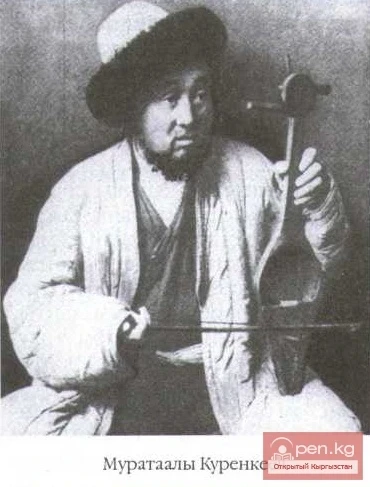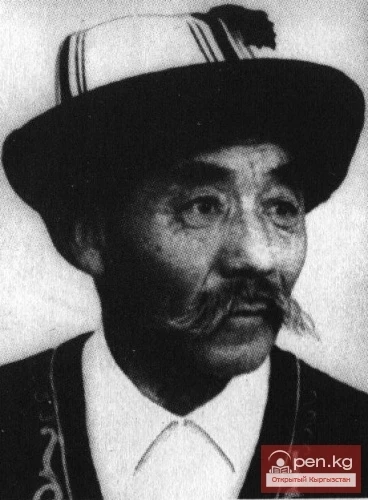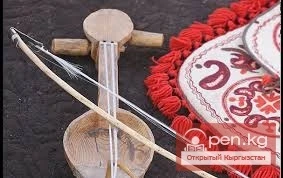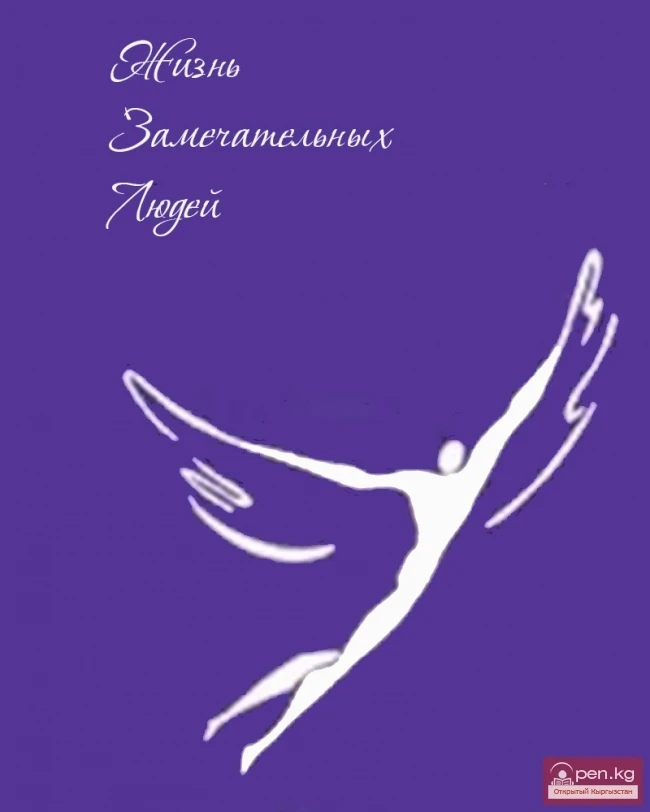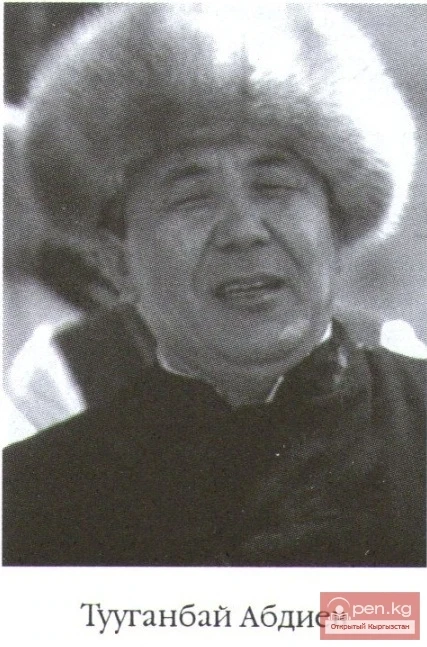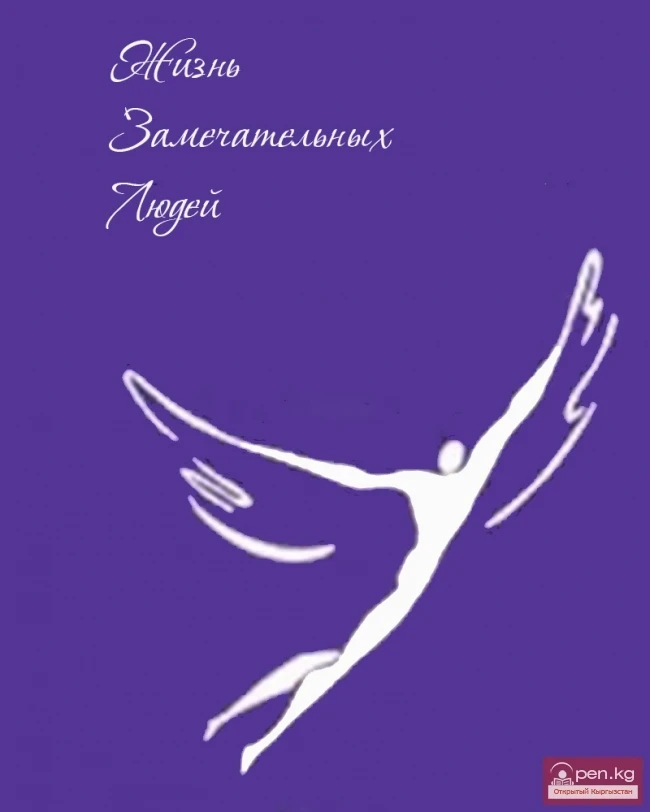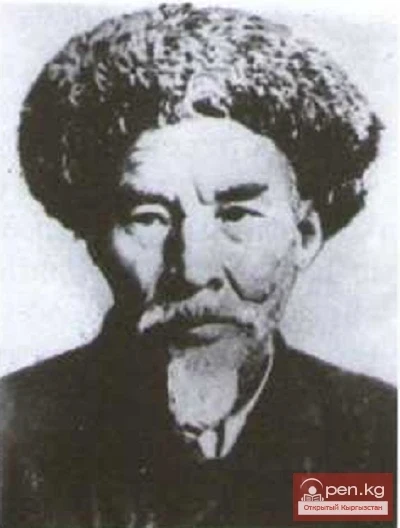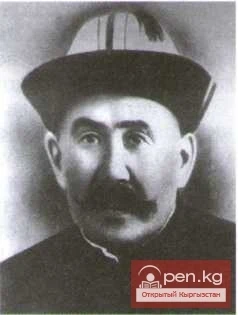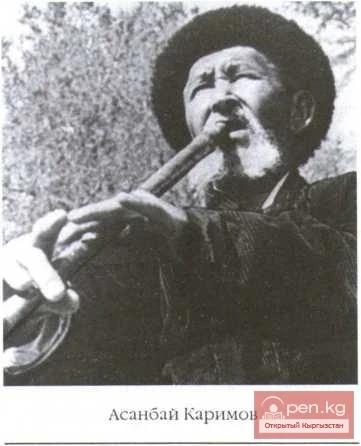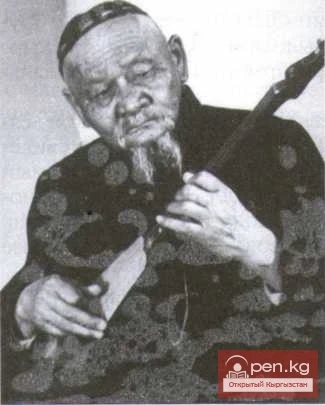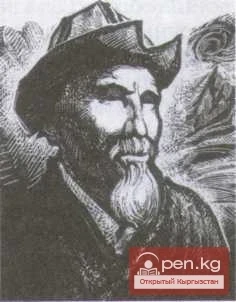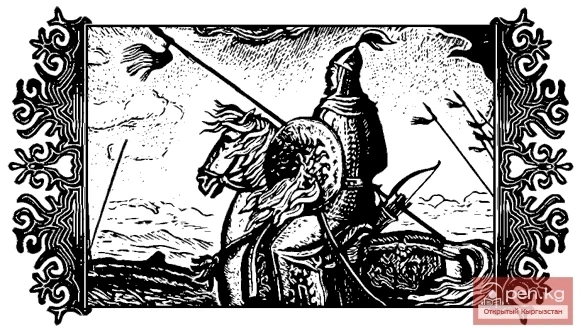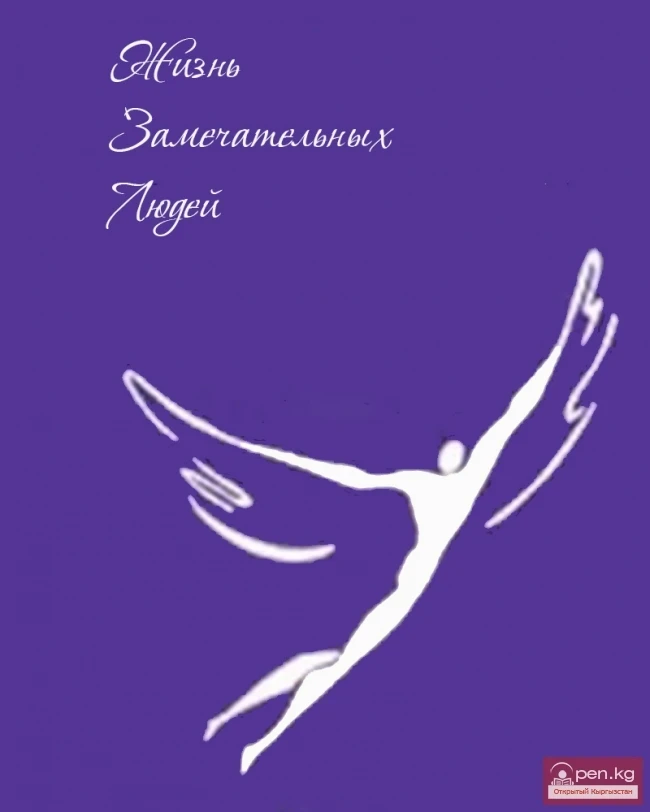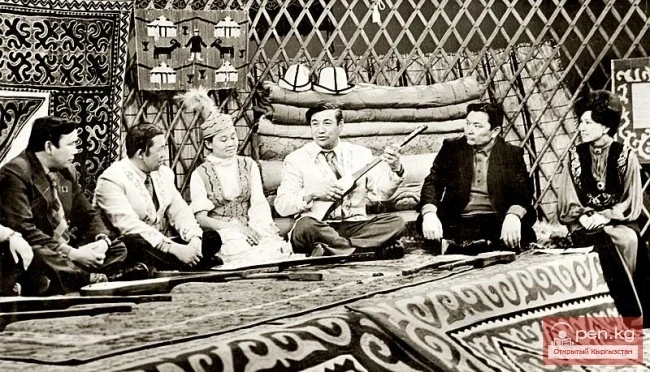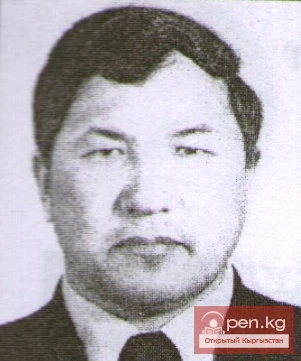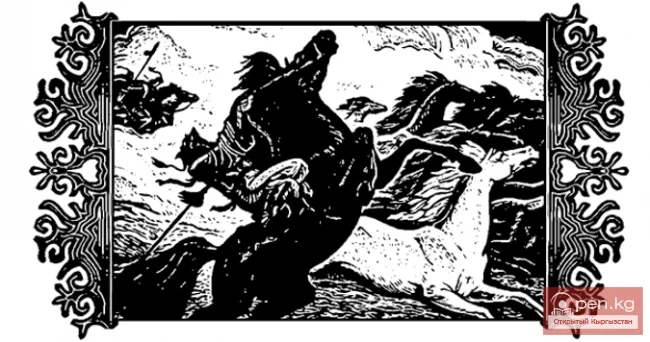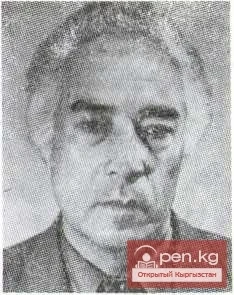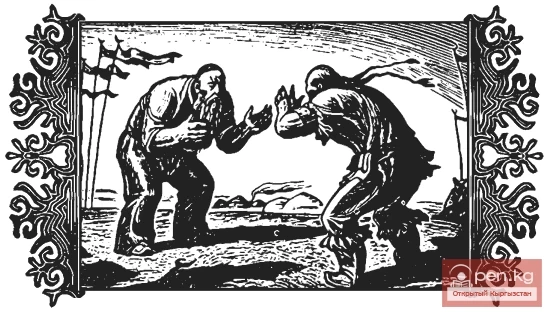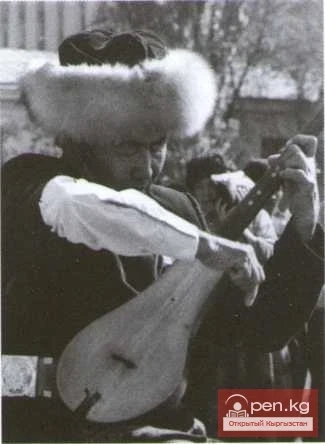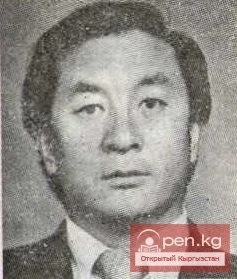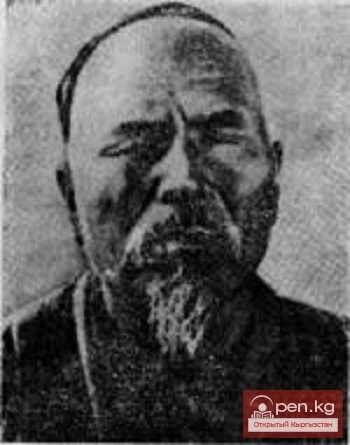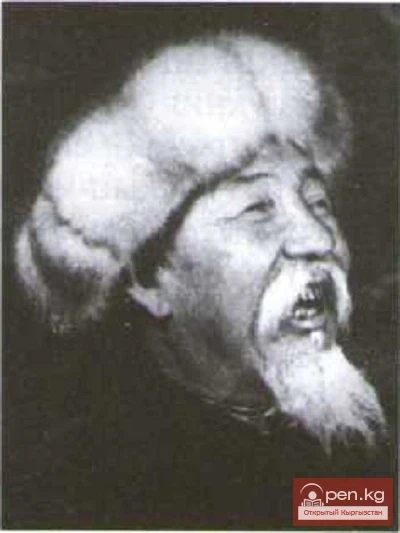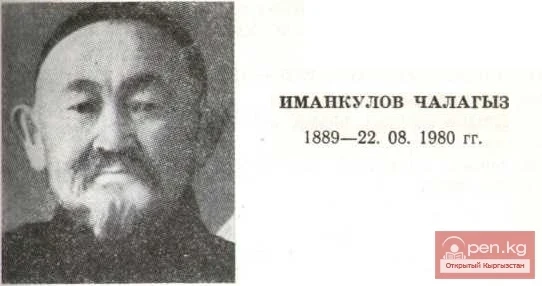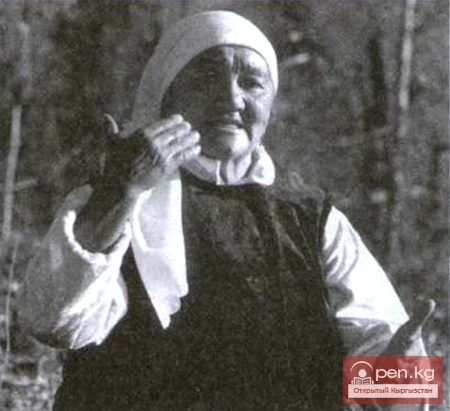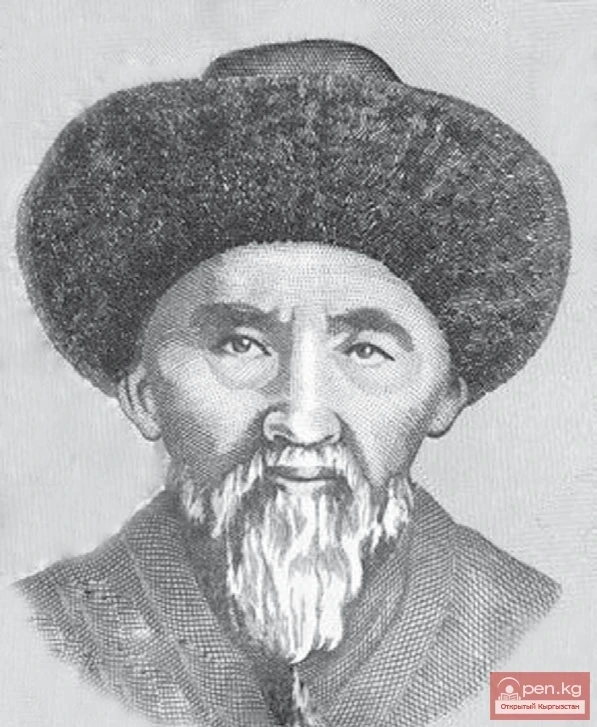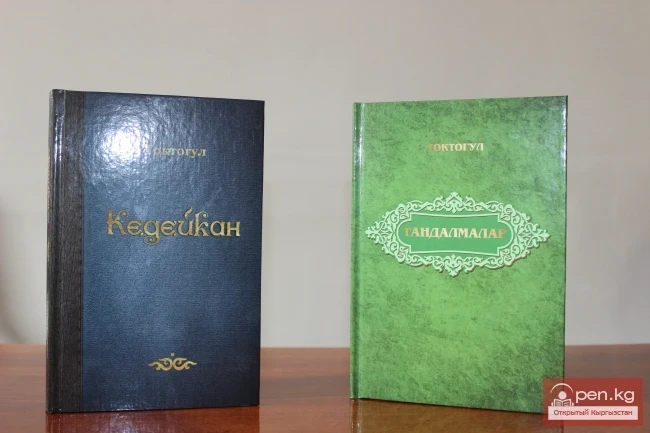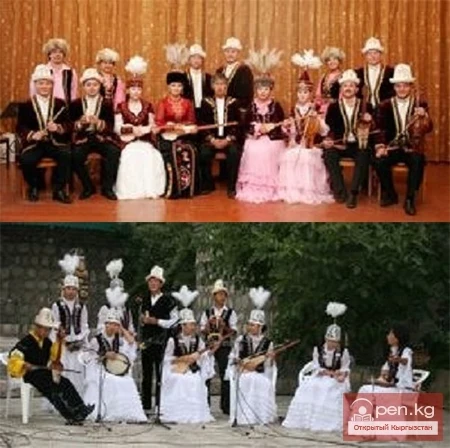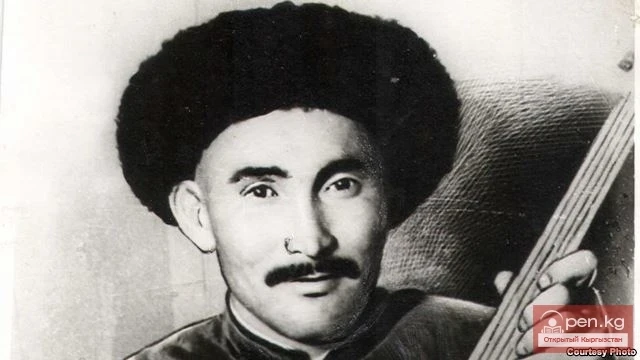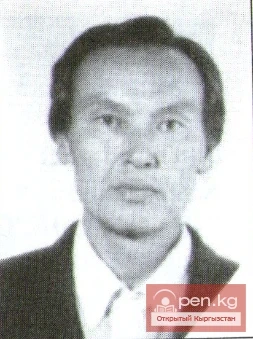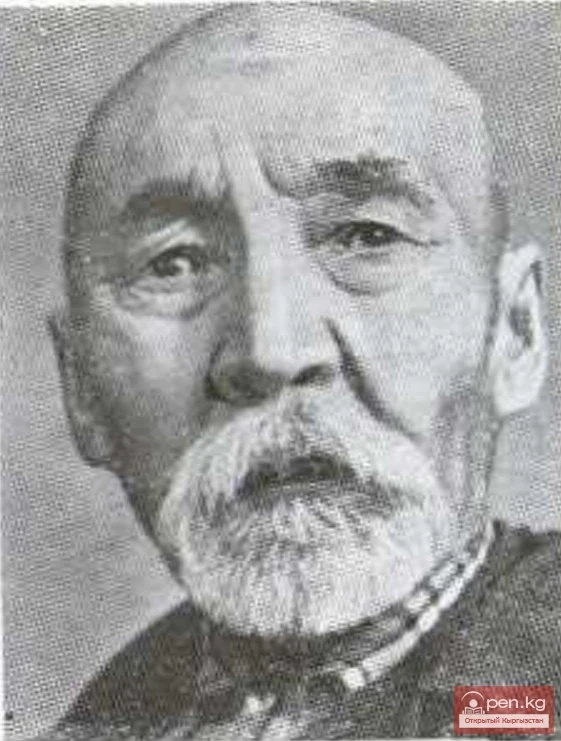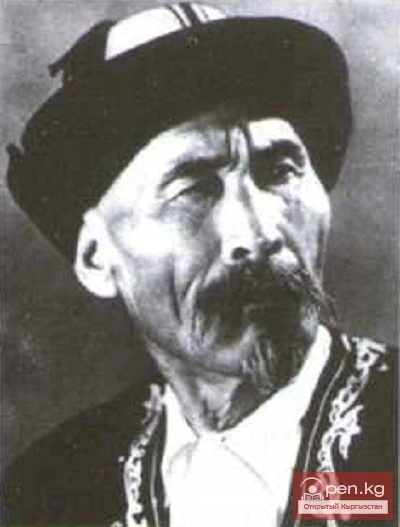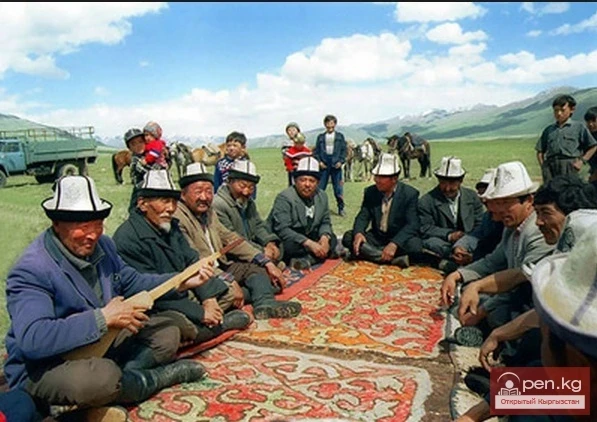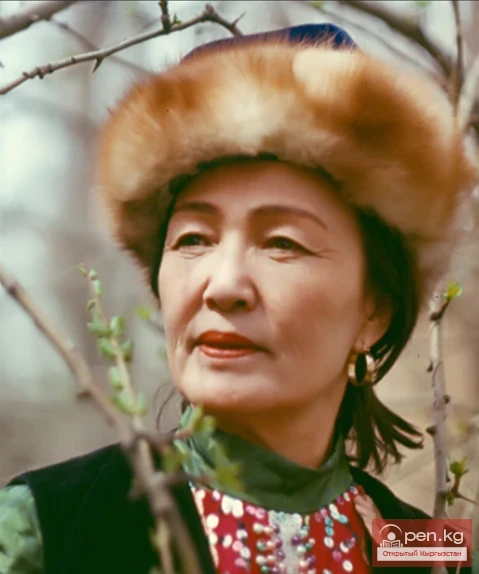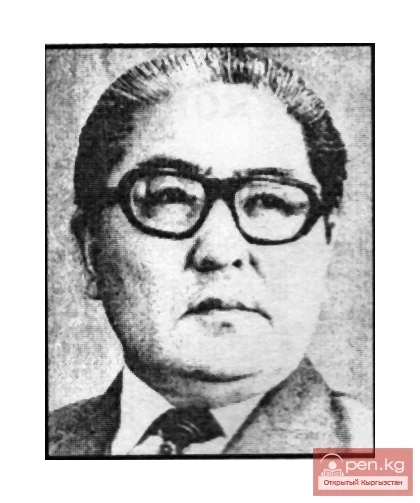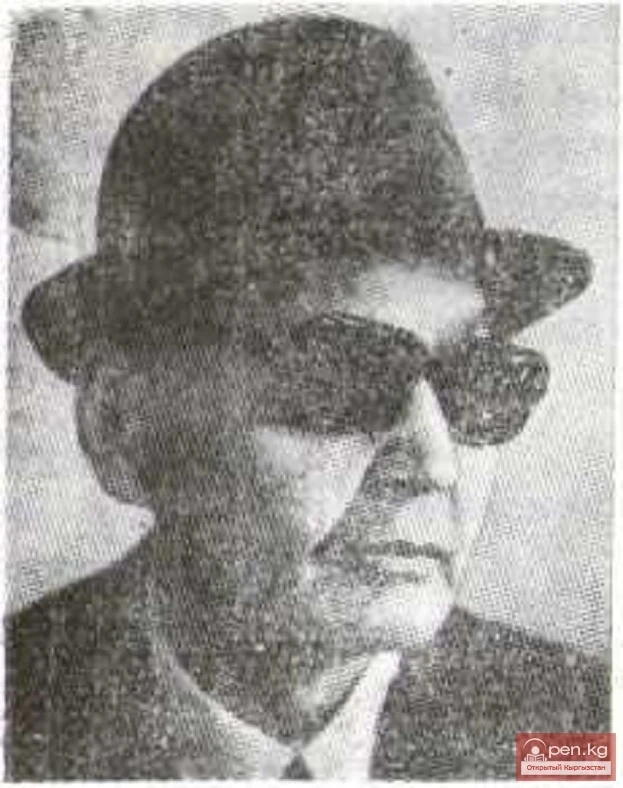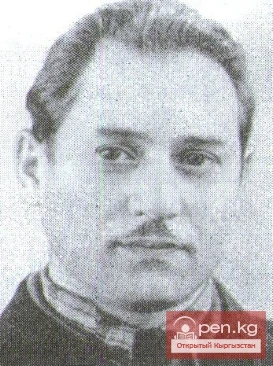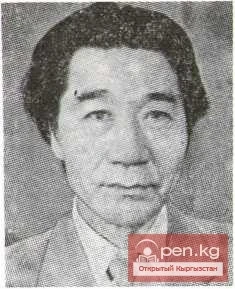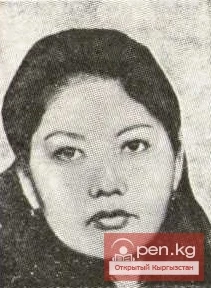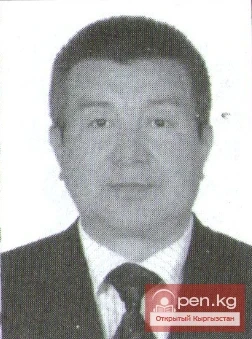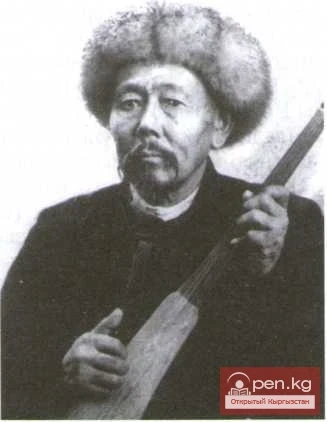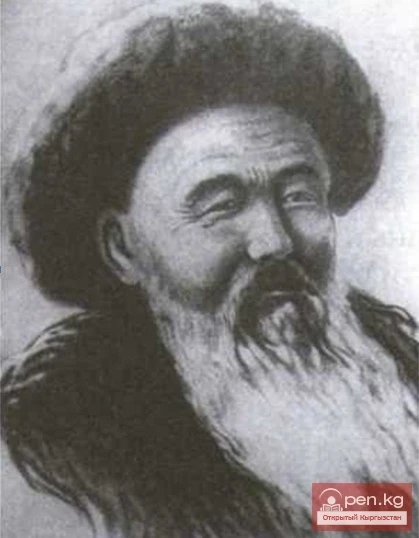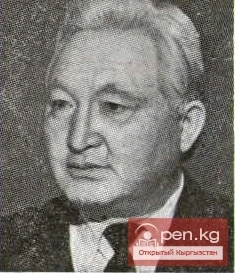
One of the best representatives of the kyl kyak tradition of the late 19th — early 20th century is Zholoy Boogachinov (1888 — 1934). He was born in the village of Ichke-Suu, now in the Toktogul district of the Jalal-Abad region, in a family of musician-kyakchy.
The boy began serious musical studies at the age of ten. He was fortunate to attend performances by Toktogul Satylganov. Zholoy mastered the komuz, sang akyn songs, but his musical talent shone most brightly in playing the kyl kyak. This instrument literally came to life in Zholoy's hands. According to B. Alagushev, the kyuu from Zholoy Boogachinov's kyl kyak repertoire skillfully imitated the sound of a horse's hooves, the howl of a wolf, the bleating of goats and sheep, the mooing of a cow, the honking of geese, and the singing of a nightingale.
Some of Zholoy Boogachinov's instrumental works are represented in the recordings of A. Zataevich. He also provides interesting details about the portrait of the Kyrgyz musician: "In appearance, he is a slender man about 40 years old, with a mobile face and quick-moving eyes, in which shine the sparks of folk humor and cheerfulness." Furthermore: "He freely and boldly masters the kyl kyak, and plays the komuz quite well." Boogachinov's performance style was characterized as virtuoso-stage, also represented in the works of N. Boroshev, T. Satylganov, A. Beishukurov, A. Ogonbaev.
Zholoy Boogachinov often performed the piece "Prize" ("Baige") on the kyl kyak. The very title of the piece contains numerous associations related to the perception of Kyrgyz people with the image of horse racing.
Interestingly, this piece, under a different name and interpretation, was played by various professional kyl kyak players. For example, in the repertoire of Murataaly Kureneev, it is listed under the title "The Horse Has Gone" ("At Ketti").
